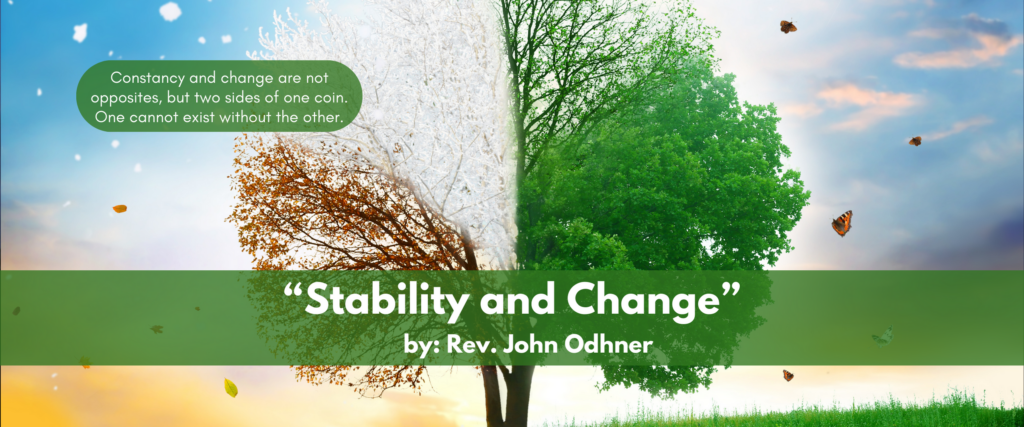
In a world where many traditions and customs are being disrupted by drastic changes, we long for stability. Yet those who experience tradition as restrictive and oppressive look for change. A hymn in our liturgy tells us that there is “amid all change One changing not, yet making all things new….” (#833, by the New Church minister Frank Sewall)
Constancy and change are not opposites, but two sides of one coin. One cannot exist without the other.
There are many constants that have been created so that varying things can happen. The fixed regularities of the rising and setting of sun, moon, and stars are constants.… There are the warmth and light they provide. There are the times of the year that we call spring, summer, fall, and winter and the times of the day called morning, noon, evening, and night.… These and many other constants have been provided from creation itself in order that an infinite variety of events may happen. These various events could not happen except in the context of things that are constant, fixed, and reliable. (Divine Providence 190)
Music, like life, is captivating because it has both constancy and change. Most music has a tonal center that it moves away from and then returns to, creating a sense of movement, of tension and resolution. Music that has harmony without variety or dissonance is monotonous; literally, it would be a single tone. Yet pure variety in sound is just white noise—also boring and without a sense of direction or movement.
In our church and our world great changes are afoot. How will we weather artificial intelligence and robots? How will these bring changes in education, politics, morality, and religious thought? It seems that technology is bringing about change at an ever-increasing pace. How can we survive this incredible rate of change?
Not by doing things the way they have been done in centuries past in older churches, with rigid dogmas and authoritarianism, yet not by rebelliously abandoning every rule and tradition of our ancestors. Our only hope for surviving change is to allow the Lord to “make all things new” by making Him the Rock that gives us a stable foundation on which to build our lives. The hymn continues: “… in whose sight all is now, in whose love all is best. The things of this world pass away. Come let us in Him rest.”
